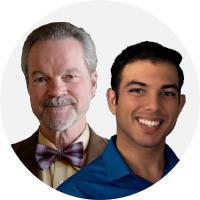The views expressed in our content reflect individual perspectives and do not represent the authoritative views of the Baha'i Faith.
In the last installment of this series, we discussed the young translator and scholar Adib Masumian’s recent provisional translation of Baha’u’llah’s Tablet of the Paradise of Justice, and its new way of defining the quality of justice. Here, the conversation continues:
[Chris] Is justice synonymous with equity, fairness or courtesy?
[Adib] In secular contemporary usage, justice, equity, and fairness all function as synonyms. If you look up each of those words in The American Heritage Dictionary, you will see that all of the definitions actually refer to each other. As one example, the primary definition given for equitable is: “The state or quality of being just and fair.”
I think, however, that the Baha’i teachings make the subtle differences between these concepts much clearer. For instance, we have the following passage from Baha’u’llah in Tabernacle of Unity:
This servant beseecheth the one True God—exalted be His glory—to graciously adorn the world of humanity with justice and fair-mindedness, although in truth the latter is but one of the expressions of the former. – p. 54.
So, Baha’u’llah defines fair-mindedness as a subset of justice—an interesting distinction. In Epistle to the Son of the Wolf, Baha’u’llah includes the following in one of his supplications to God:
Bestow justice upon the rulers, and fairness upon the divines. – p. 104.
It seems to me that justice is a virtue chiefly exercised by actual sovereigns who hold real power, and the language of the Tablet of the Paradise of Justice seems to confirm this idea. Whereas “fairness” or “fair-mindedness” are traits that all of us have the potential to exemplify.
Courtesy basically refers to consideration for others, so it is quite different in that sense from the above set of words. There is, however, ample praise for this important virtue in the writings of Baha’u’llah. In his Tablet to Napoleon III, he says:
We, verily, have chosen courtesy, and made it the true mark of such as are nigh unto Him. Courtesy is, in truth, a raiment which fitteth all men, whether young or old. Well is it with him that adorneth his temple therewith, and woe unto him who is deprived of this great bounty. – Summons of the Lord of Hosts, pp. 71-72.
Personally, I think there is something very pleasant about seeing someone be courteous in their interactions with others. It is a demonstration of our inherent capacity to be good, kind, and noble, all wrapped up into one beautiful virtue. Perhaps that’s why it’s such an attractive trait!
[Chris] According to the Baha’i teachings, are there other aspects to justice, such as belief in Baha’u’llah and following Baha’i laws?
[Adib] Actually, one particular passage from this tablet, translated by Shoghi Effendi, addresses that question directly:
Know verily that the essence of justice and the source thereof are both embodied in the ordinances prescribed by Him Who is the Manifestation of the Self of God amongst men, if ye be of them that recognize this truth. He doth verily incarnate the highest, the infallible standard of justice unto all creation. Were His law to be such as to strike terror into the hearts of all that are in heaven and on earth, that law is naught but manifest justice. – Gleanings from the Writings of Baha’u’llah, p. 175.
This truly fascinating declaration—that Baha’u’llah himself incarnates “the highest, the infallible standard of justice unto all creation”—really struck me profoundly. That’s precisely why, as I mentioned above, obedience to him is even more cherished than “the acts of worship and devotion offered by the entire creation”—because the very pinnacle of justice itself lies in following the prophet of God for this day and age.
Here is another fascinating declaration from Baha’u’llah’s tablet on the subject of justice:
The justice that shaketh the pillars of oppression and eradicateth the foundation of blasphemy is the recognition of this Revelation in this resplendent dawn, wherein the Sun of Glory [Baha] shineth with manifest sovereignty above the horizon of eternity. Whoso believeth not in Him hath indeed abandoned the stronghold of justice, and recorded his name as an oppressor in the glorious and preserved Tablet.
Perhaps the above passages are why, at a later point in the Tablet, Baha’u’llah actually mentions its recipient by name and remarks that “his justice is his faith in God” and that “it is a justice unmatched by any other.”
[Chris] Did Baha’u’llah’s broader, more expansive understanding of justice surprise you?
[Adib] Absolutely. This really strikes me as a revolutionary take on the concept of justice—that observing it lies in recognizing the prophet of God, and violating it lies in a conscious denial of his claim. I can hardly imagine what the ramifications of so profound a pronouncement might be.
[Chris] Based on this tablet, how can we transform justice as a godly perfection into a goodly actions?
[Adib] Baha’u’llah states that, in this tablet, he has:
…breathed the Spirit of Justice into the mortal frames of all that dwell on earth, that they may arise to rule over themselves and over others with pure justice…
So, we know that each person can exercise justice in their own way. How can we exercise that justice on an individual level, you ask? Well, Baha’u’llah wrote in this tablet that “it is through justice that every one is rendered his due.”
I think we have to take it upon ourselves to be fair in our dealings with others, and that if we are in a position to render someone his or her due, we really are obligated to do it. After all, “the exercise [of justice] befitteth all mankind,” according to this tablet. To me, “all mankind” here implies the high and the low, the strong and the weak, and so on.
This passage from Baha’u’llah’s tablet supports that idea:
Even if a man were to strive until the end that hath no end and bend every possible effort to deal equitably with others, if he should ever hesitate in the exercise of justice, he would verily have committed an injustice against his own self, and would be regarded as one of the oppressors.
I think this tablet—rife with injunctions to sovereigns about how they should exercise justice—has even more relevance to the average person. We can all, of course, take those commands to leaders and sovereigns to heart, and do our utmost to observe them in our own limited capacities.
You can read Adib Masumian’s full provisional translation of Baha’u’llah’s Tablet of the Paradise of Justice (Lawh-i-Ridvánuʼl-ʻAdl).

















Comments
Sign in or create an account
Continue with Facebookor